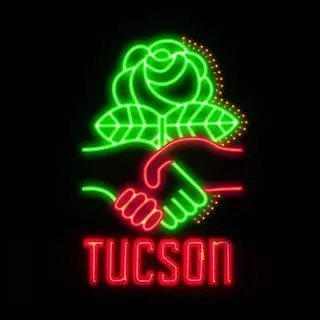

HCV: Jersey City Council passes amended right to counsel ordinances on first reading
“Jersey City is facing an eviction crisis. Rents are rising faster than incomes. Tenants deserve to know their rights and defend them. Developers have poured money into Jersey City. But not enough new units are affordable. More and more residents are being displaced. It’s time for developers to give back to the city…”


WFMU: Right to Counsel Interview #2
Right to Counsel JC Co-Chair Jake E. returned to DJ Trouble’s “This Is the Modern World” on WFMU!
Jake E, organizer for the Right to Counsel Campaign makes a second appearance on Jersey City’s very own WFMU to discuss the Right to Counsel campaign’s push ahead of the final vote on June 14th and tenants’ rights in Jersey City.
You can listen to the full interview here. Jake’s interview starts at 1:24:11 in the episode!


Winning Green Power for the People
Tonight we are going to talk about winning. Earlier this month the Build Public Renewables Act passed through the New York State budget - a monumental victory for the Public Power NY Coalition that has been organizing for four years to pass the bill.
No outlet has covered the fight for Public Power in New York more than Revolutions Per Minute. Since day one in 2019, we’ve had lead organizers of the campaign on the show to speak about why we need Public Power and how we were going to win it.
Tonight on this special Best of BAI fund drive show - we’ll revisit some of those interviews and hear from the organizers who won socialist climate legislation here in New York. We’ll also hear past interviews with Assemblymembers Zohran Mamdani and Sarahana Shrestha
If you’ve been listening along with us since day one, go to WBAI.org right now and make a donation to keep us on the air.
You can follow the Public Power NY Coalition on twitter @PublicPowerNY
To learn more about how the Public Power NY Coalition won the Build Public Renewables Act watch BPRA: A Win in the Fight for a Green New Deal


Capitalocene Q&A (with Joerg Rieger)


NJ.com: City council ready to introduce Jersey City’s right-to-counsel program legislation after some tweaks
By Mark Koosau
The creation of Jersey City’s right-to-counsel program for tenants and a fee on new developments to fund it has hit a snag as the city council plans to reintroduce the legislation with some changes.
Two related ordinances will be up for re-introduction Wednesday night, but the original purpose remains unchanged: a program to provide free legal representation for tenants facing evictions, and a 1.5-2.5% fee on new developments that would fund its $4 million budget.
“We are doing a better job of making sure the ordinance serves everybody,” said Councilman James Solomon, the sponsor of the legislation, in regard to the changes.
“Ultimately the end goal is keeping tenants in their homes… Read on at NJ.com


The Indypendent: The Long Struggle for Affordable Housing in New Jersey Dates Back to the Civil Rights Movement
“Just as Mount Laurel residents fought back 50 years ago, tenants in Jersey City are currently organizing against rising rents and evictions. The two right to counsel ordinances they are fighting for will give all tenants in Jersey City the right to free legal representation, create a right to counsel office in City Hall and introduce fees on developers to create an affordable housing fund. Part of that fund will be used to cover the costs of tenants’ legal services.”


HCV: Jersey City RTC advocates march to City Hall as council gets ready for vote
“Workers and tenants are fighting back in their unions in their tenancies with their neighbors and at City Hall. We’re not paying for right to counsel through taxpayers. We’re going to tax the rich. We’re funding right to counsel with a fee on development…Including the biggest developer in Jersey City, the LeFrak organization. LeFrak is the chief architect of Newport and the displacement of thousands of Jersey City residents that lived right here.”


Hop Shop Social - Tucson DSA
|


LETTER: The Jersey City Council must adopt Right to Counsel (RTC)
From longtime Greenville resident Hakim Hasan: RTC has the potential to protect vulnerable residents from housing injustices and provide them with the legal support they desperately need.
“For far too long, the landscape of Jersey City has been shaped by mega-landlords, developers, and real estate investors, resulting in an increasingly unaffordable city for its residents. Sadly, it is the poor and working-class individuals throughout our city who bear the brunt of exploitation by unscrupulous landlords. It is imperative that the Right-to-Counsel ordinance provides the necessary legal representation and advice to vulnerable families facing illegal evictions and habitability issues in their homes.
Supporting the Right-to-Counsel ordinance is an easy decision for me.”
Read “The Jersey City Council must adopt Right to Counsel (RTC)” in TAPinto Jersey City


HCV: Hudson County DSA hosts Town Hall about Jersey City’s Right to Counsel proposal
The Hudson County chapter of the Democratic Socialists of America (DSA) hosted a town hall at the Mary McCleod Bethune Center last night about Jersey City’s right to counsel proposal ahead of next week’s council meeting.
“Hudson County DSA has been campaigning for nearly a year for the law and have asked for a universal policy, immediate implementation, and protections for tenants with vouchers.”
